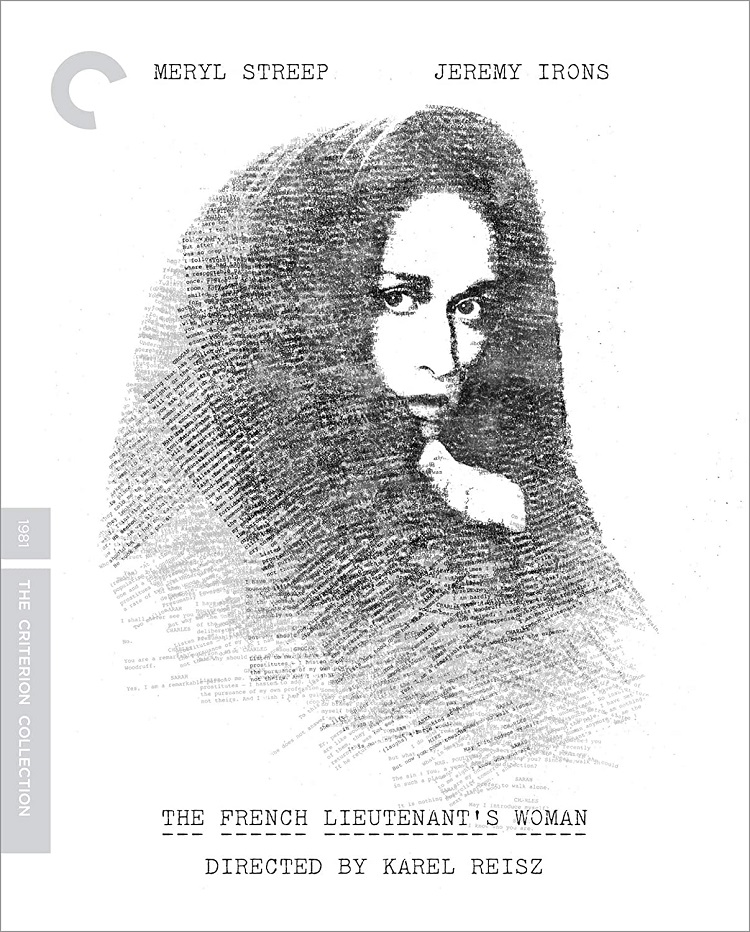
Based on the John Fowles novel, The French Lieutenant’s Woman tells parallel tales rooted in forbidden passions and the complexity of human emotions.
Meryl Streep and Jeremy Irons play the central characters in both narratives. The foundational story is set in the Victorian-era where Charles (Irons) is an upper-class English gentleman engaged to Ernestina (Lynsey Baxter). Soon after their engagement, they see a woman, Sarah (Streep), at the end of a jetty in danger of being thrown into the water due to a storm that is brewing. When Charles makes efforts to go help Sarah, Ernestina stops him by explaining that the woman is pure tragedy and mad.
Being a paleontologist, Charles often goes into the woods to search for fossils. During one such excavation, he runs into Sarah but she rebuffs his attempts to talk to her. Sarah is in the process of being evicted from her home since the owner has passed. She manages to get a job as the companion to Mrs. Poulteney (Patience Collier), a heavily religious and rigid woman, and joins her on a visit to Ernestina’s home.
During the visit, Sarah slips Charles a note asking him to meet her. At their meeting, he scolds her for the brazen behavior. She begs him to meet her again so she can tell him her story since he is her only hope. Charles meets with the local doctor, Dr. Grogan (Leo McKern), who explains that Sarah suffers from obscure melancholia resulting in the constant seeking out of torture as a way to find pleasure and doesn’t want to be cured. He further explains that if Sarah could finally confide her true state of mind to someone, she could be cured. With this knowledge, Charles seeks her out to learn her story and eventually gets swept up into her world of drama and passion.
The second storyline is set in the modern world where Anna (Streep) and Mike (Irons) are lovers, both married, playing the parts of Sarah and Charles in a film production based on the Victorian-era love affair. As they research and grow into their characters, their obsession with each other also grows.
This is an opportunity to see the beginnings of Streep’s amazing career with her first leading roles. There are few actors who convey sexual longing and torture like Irons and this early role demonstrates that. The dual roles played by Streep and Irons provide each of them the opportunity to portray desperation, longing, and tortured vulnerability. All four characters are flawed and driven by desire, causing them to make poor choices resulting in the pain and torment for themselves and many others in their lives.
The French Lieutenant’s Woman is one of those films that has me wishing I would have read the novel to know more about each character and storyline. The performances are not the only highlight of the film. There are scenes of incredible darkness showcased by the setting, lighting, and camera movements balanced by moments of light.
The film is amazingly successful in switching between the two eras and while creating a connection to both sets of characters and storylines. The differences and similarities between the love stories is compelling as they reach their climax.
The Criterion Collection edition offers several special edition features. “Emotional Uncertainties” is a 2015 documentary featuring interviews with Streep, Irons, and editor John Bloom on their experiences working on the film and with the director. There are also interviews with film scholar Ian Christie and composer Carl Davis. A 1981 episode of The South Bank Show features a discussion on the screen adaptation amongst director Karel Reisz, Fowles, and screenwriter Harold Pinter. Also included is a trailer and essay from film scholar Lucy Bolton.
The French Lieutenant’s Woman is an impressive film, well deserving of this release by the Criterion Collection.